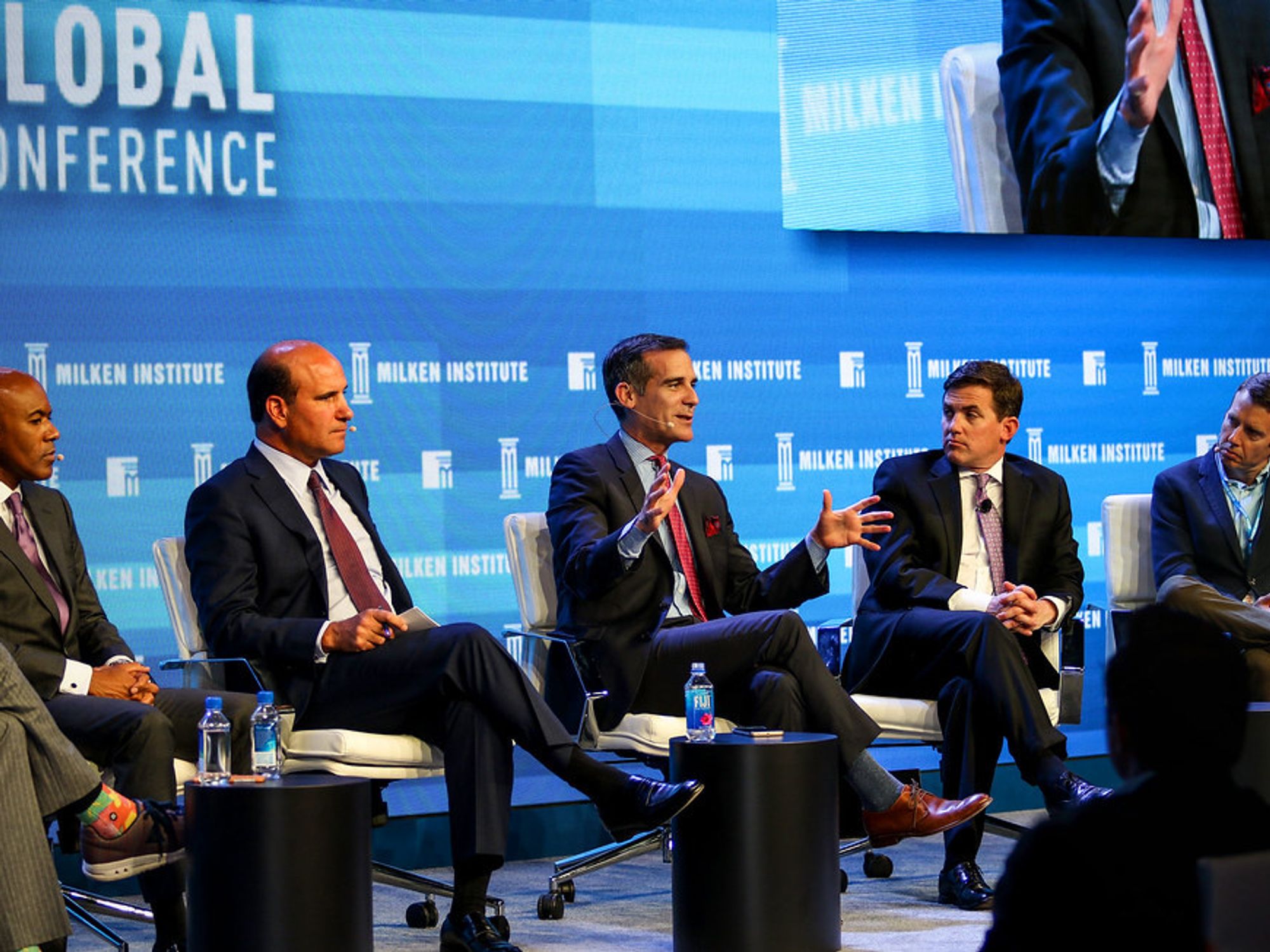What Happens When So Many Big Events Get Canceled? 'There's No Precedent For This'
Ben Bergman is the newsroom's senior finance reporter. Previously he was a senior business reporter and host at KPCC, a senior producer at Gimlet Media, a producer at NPR's Morning Edition, and produced two investigative documentaries for KCET. He has been a frequent on-air contributor to business coverage on NPR and Marketplace and has written for The New York Times and Columbia Journalism Review. Ben was a 2017-2018 Knight-Bagehot Fellow in Economic and Business Journalism at Columbia Business School. In his free time, he enjoys skiing, playing poker, and cheering on The Seattle Seahawks.

With virtually every event nationwide now canceled for at least the next two months, Cameron Argetsinger, who specializes in insurance law, says his phone has been ringing nonstop.
"There's no precedent for this," he told dot.LA.
The Centers for Disease Control recommended Sunday that events with more than 50 attendees be canceled or postponed for the next two months. Last week, Gov. Gavin Newsom banned gatherings of 250 through at least March. Mayor Eric Garcetti ordered restaurants, bars, nightclubs and gyms closed last night.
Most conference organizers did not wait for official orders, with Southern California events such as Coachella, E3, and The Milken Global Conference already delayed or canceled.
Argetsinger, Special Counsel at the Washington D.C. based firm, Kelley Drye & Warren LLP, has been getting calls from conference organizers desperate to recoup losses from events they have to cancel or postpone because of coronavirus. He says most big conferences buy cancellation insurance, but the majority of policies have exclusions for communicable disease. Policyholders can choose to pay slightly higher premiums to be covered against disease, though many do not carry the extra coverage, including South By Southwest, which will now reportedly be on the hook for tens of millions dollars.
"The devil is in the details," said Argetsinger.
For those trying to file claims, Argetsinger recommends policyholders be as thorough as possible and document losses meticulously.
"Event organizers who have bought cancellation policies should know that they may be facing an uphill battle in trying to obtain coverage from insurers who are overwhelmed by the sheer volume of cancellation claims and who are trying to limit their own losses," Argetsinger said. "It is critical for policyholders to understand the terms of their policies and to comply with all of the requirements that the policy places on them."
He says it helps that governments are increasingly banning gatherings, which makes it hard to argue that events could proceed.
"That would strengthen the claim," he said.
Postponing the Milken Global Conference
On March 7th, executives at the Milken Institute postponed the 23rd annual Global Conference to July. The event, which attracts 4,000 attendees from more than 70 countries to Beverly Hills normally takes over the entire Beverly Hilton – from the same massive ballroom where the Golden Globes are held to dozens of smaller rooms. It is likely not possible to replicate the same thing this summer, though the institute is currently in negotiations with the hotel about how much of the conference can take place there and would only say that it would be happening "somewhere in Los Angeles."
"There is no guarantee of how things are going to look in July, but all of the best advice we were getting in terms of monitoring the track of the virus was that what we've seen in Asia was there was a peak over a period of about two months," said Katherine O'Reilly, Milken's Executive Director of Business and Development.
Milken has a full-time staff of about 25 working on the conference year round and another 100 who pitch in once the date gets closer, all of whom will now have to turn their attention to trying to reschedule panels and add new ones to reflect how the world has changed.
"It's a very heavy lift logistically," said O'Reilly.
O'Reilly didn't know the financial toll of postponing the conference and what might be covered by insurance, but if the conference is ultimately canceled or scaled back, it would be a major blow for Milken since the conference – with ticket prices in the thousands of dollars and lucrative sponsorships – covers much of the Institute's operating budget.
"Our expectation is that the sponsors are sticking with us," said O'Reilly. "For a lot of people this conference is important to their business, so they want to see it continue."
The wider economic impact of the conference not taking place totals at least $19 million, PredictHQ, a provider of event data, told dot.LA. It says all told, billions of dollars will be lost from the tens of thousands of events not taking place around the world.- Michael Milken Predicts We'll Soon Develop a Coronavirus Testing ... ›
- Coronavirus Could Delay Xbox and PlayStation Releases - dot.LA ›
- First Coronavirus Death in Los Angeles County - dot.LA ›
- Coronavirus Updates: LAUSD Closes, Apple Developer Summit ... ›
- Milken Announces In-Person Global Conference for October - dot.LA ›
- E3 Will Be Online-Only Again This Year - dot.LA ›
Ben Bergman is the newsroom's senior finance reporter. Previously he was a senior business reporter and host at KPCC, a senior producer at Gimlet Media, a producer at NPR's Morning Edition, and produced two investigative documentaries for KCET. He has been a frequent on-air contributor to business coverage on NPR and Marketplace and has written for The New York Times and Columbia Journalism Review. Ben was a 2017-2018 Knight-Bagehot Fellow in Economic and Business Journalism at Columbia Business School. In his free time, he enjoys skiing, playing poker, and cheering on The Seattle Seahawks.




